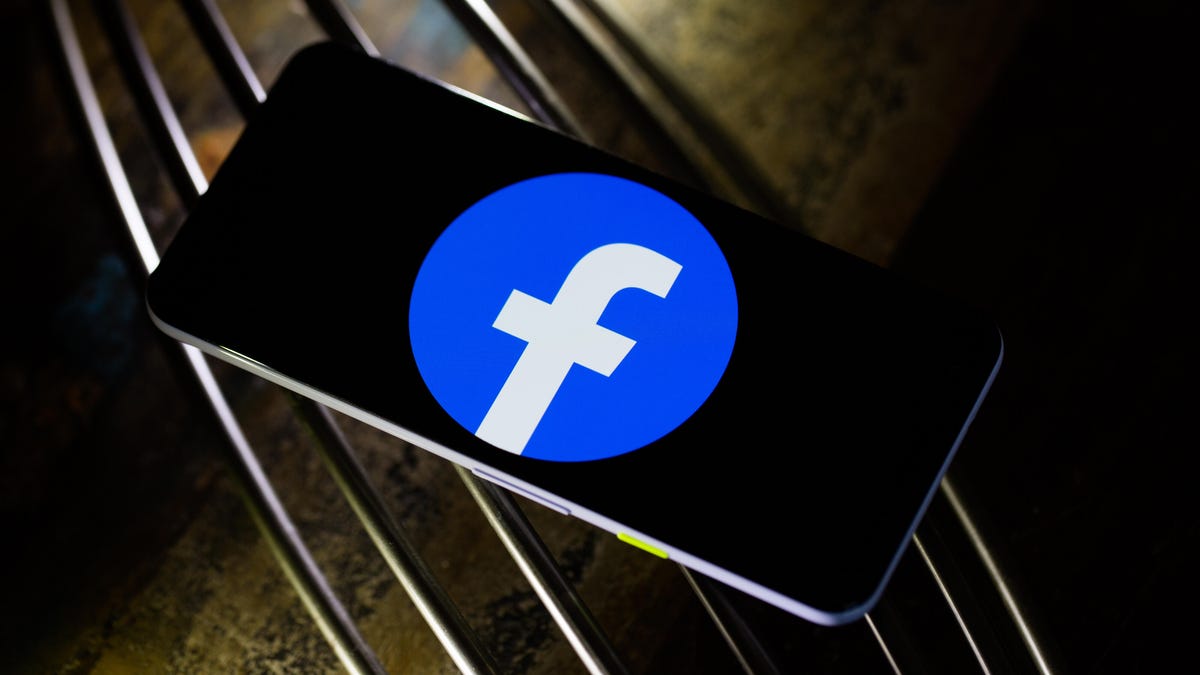Facebook pulls Trump ad that featured Nazi symbol
The social networking giant says the ad violated its rules "against organized hate."

Before they were removed, the ads had racked up more than 800,000 impressions on the president's Facebook page alone.
Facebook on Thursday said it removed ads attacking antifa and "far-left groups" run by President Donald Trump's reelection campaign for violating its rules "against organized hate." The ads featured an inverted red triangle, a symbol used by Nazis to identify political prisoners in concentration camps.
"We removed these posts and ads for violating our policy against organized hate," said a Facebook spokesperson on Thursday. "Our policy prohibits using a banned hate group's symbol to identify political prisoners without the context that condemns or discusses the symbol."
Pulling down Trump's reelection campaign ad is a rare move by Facebook, which has been criticized for its mostly hands-off approach to political speech. The company doesn't send posts and ads from politicians to third-party fact-checkers but this isn't the first time Facebook has removed a Trump ad. Facebook is also facing more pressure to combat hate speech. Civil rights groups are calling on advertisers to boycott the social network in July.
The ads, which were spotted earlier by Media Matters and The Washington Post, started running Wednesday and showed up on Facebook pages for Trump, Vice President Mike Pence, Team Trump and other pages. Before they were removed Thursday, the ads had racked up more than 800,000 impressions on the president's Facebook page alone, according to data in the company's Ad Library.
In total, the Trump campaign ran 88 ads featuring the inverted red triangle on Facebook, according to the Post. The ads used the symbol alongside text warning that "dangerous MOBS of far-left groups are running through our streets and causing absolute mayhem," and asking people to "stand with your President and his decision to declare ANTIFA a Terrorist Organization."
Antifa, short for anti-fascists, is an overarching description of far-left militant groups that confront white supremacists and neo-Nazis at rallies and other events. Trump in May tweeted that the US would designate antifa as a terrorist organization.
The Trump campaign defended its ads Thursday, saying the inverted red triangle is a symbol commonly used by antifa.
"The inverted red triangle is a symbol used by Antifa, so it was included in an ad about Antifa," said Tim Murtaugh, director of communications for the Trump campaign, in an emailed statement. "We would note that Facebook still has an inverted red triangle emoji in use, which looks exactly the same, so it's curious that they would target only this ad." He added that the inverted red triangle isn't included in the Anti-Defamation League's database of symbols of hate.
Facebook employees had an internal debate about whether the use of the inverted red triangle violated its rules, according to The Washington Post, which reviewed internal correspondence within the company. A policy executive, who wasn't named, said the red triangle was "common enough that it's an emoji in most keyboards, including on Facebook" but other employees said that the social network's evaluation was "fundamentally broken."
Conservatives have accused social networks of censoring their speech, which the companies have denied. Trump recently signed an executive order that would curtail the legal protections internet platforms get under federal law for content posted by users, but that order is already facing a lawsuit.
Nathaniel Gleicher, who oversees cybersecurity policy at Facebook, said during a virtual hearing before the House Intelligence Committee on Thursday that the company doesn't allow symbols representing hateful organizations or ideologies unless users provide more context or are condemning its use. Facebook will automatically pull posts that use the Nazi symbol, he said, but their systems might miss some content. It's unclear how many posts Facebook has pulled so far for including the inverted red triangle.
Facebook has taken down ads from Trump's reelection campaign before. This year, the social network removed Trump campaign ads directing supporters to take a survey that was called the "Official 2020 Congressional District Census." The company pulled the ads because of concerns it would create confusion about the 2020 US Census.
In 2018, Facebook took down another ad from Trump's campaign for violating its rules against "sensational content." That ad features Luis Bracamontes, an undocumented immigrant who was convicted of killing two California sheriff's deputies in 2014. It attempted to falsely connect Bracamontes' crimes to the migrant caravan making its way from Mexico to the US border.
Facebook, though, has strayed away from pulling down or fact-checking ads from Trump that contain misinformation. Last year, Facebook rejected a request from Joe Biden's presidential campaign to remove an ad that said Biden had promised Ukraine $1 billion if officials in that country fired the prosecutor investigating a company affiliated with Biden's son. There's no evidence to support the claim, which has been debunked by fact-checking groups and media reports.
Biden's campaign launched a campaign this month calling on the company to fact-check ads two weeks before they're allowed on its platform. In response, Facebook put the pressure on elected officials to make new rules about campaign ads and said it would follow them.



